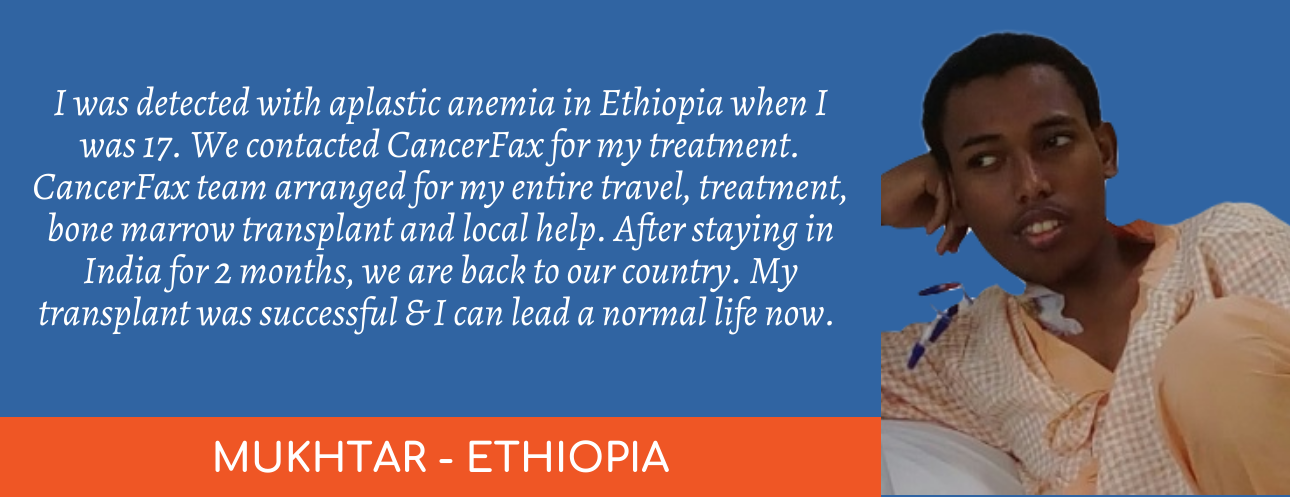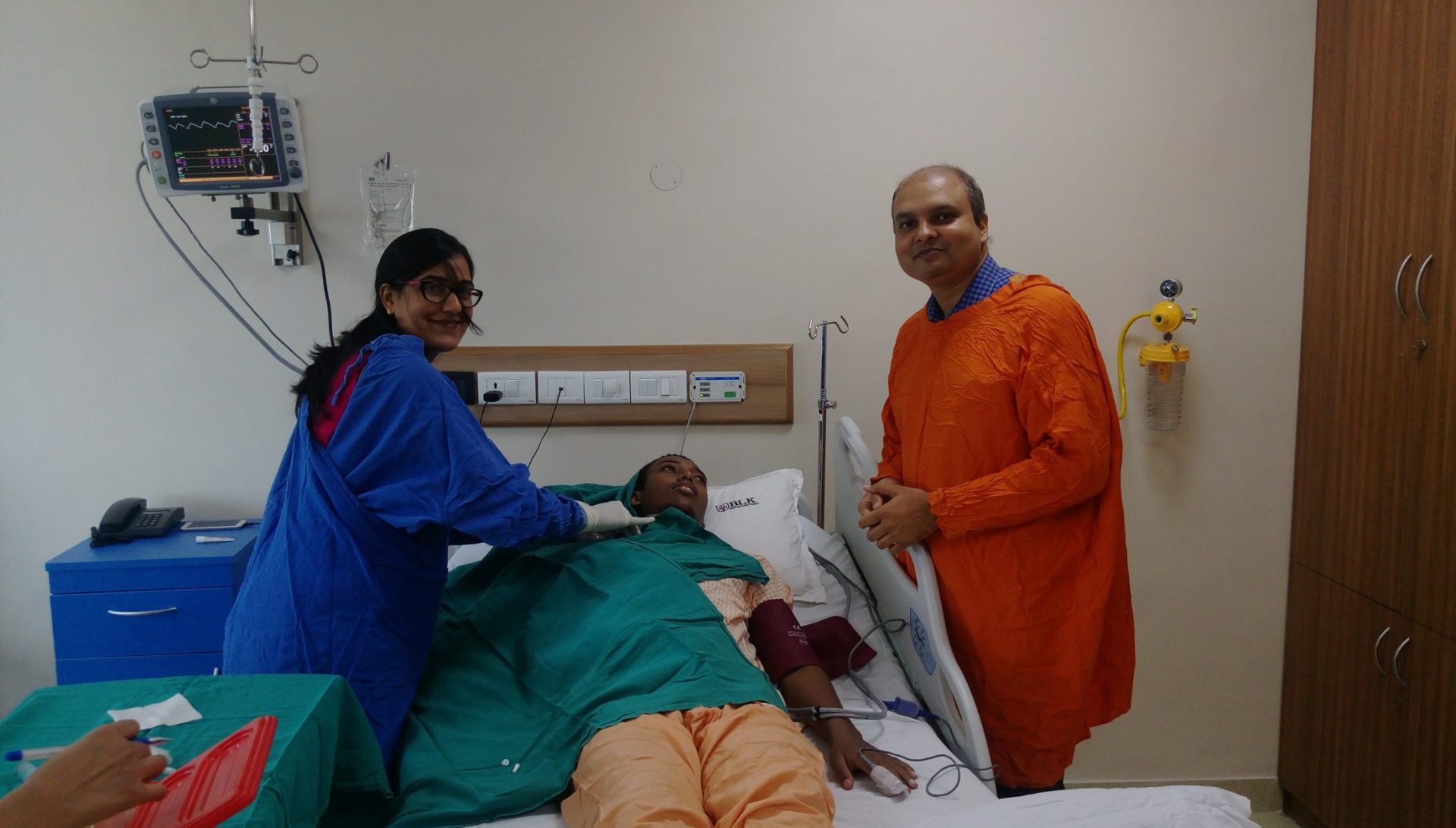Bone marrow stem cell transplant

Bone marrow transplant
Bone marrow transplants are procedures that restore blood-forming stem cells in people who have had theirs destroyed by the very high doses of chemotherapy or radiation therapy that are used to treat certain cancers.
Blood-forming stem cells are important because they grow into different types of blood cells. The main types of blood cells are:
- White blood cells, which are part of your immune system and help your body fight infection
- Red blood cells, which carry oxygen throughout your body,
- Platelets, which help the blood clot
You need all three types of blood cells to be healthy.
Types of bone marrow transplant
In a stem cell transplant, you receive healthy, blood-forming stem cells through a needle in your vein. Once they enter your bloodstream, the stem cells travel to the bone marrow, where they take the place of the cells that were destroyed by treatment. The blood-forming stem cells that are used in transplants can come from the bone marrow, bloodstream, or umbilical cord. Transplants can be:
- Autologous, which means the stem cells come from you, the patient
- Allogeneic, which means the stem cells come from someone else. The donor may be a blood relative but can also be someone who is not related.
- Syngeneic, which means the stem cells come from your identical twin if you have one
To reduce possible side effects and improve the chances that an allogeneic transplant will work, the donor’s blood-forming stem cells must match yours in certain ways. To learn more about how blood-forming stem cells are matched, see Blood-Forming Stem Cell Transplants.
How does bone marrow transplant work against cancer?

Who receives stem cell transplant ?
Stem cell transplants are most often used to help people with blood related disorders like Aplastic anemia, leukemia and lymphoma. They may also be used for neuroblastoma and multiple myeloma.
Stem cell transplants for other types of cancer are being studied in clinical trials, which are research studies involving people.
Stem cell transplants can cause side effects
The high doses of cancer treatment that you have before a stem cell transplant can cause problems such as bleeding and an increased risk of infection. Talk with your doctor or nurse about other side effects that you might have and how serious they might be. For more information about side effects and how to manage them, see the section on side effects.
If you have an allogeneic transplant, you might develop a serious problem called graft-versus-host disease. Graft-versus-host disease can occur when white blood cells from your donor (the graft) recognize cells in your body (the host) as foreign and attack them. This problem can cause damage to your skin, liver, intestines, and many other organs. It can occur a few weeks after the transplant or much later. Graft-versus-host disease can be treated with steroids or other drugs that suppress your immune system.
The closer your donor’s blood-forming stem cells match yours, the less likely you are to have graft-versus-host disease. Your doctor may also try to prevent it by giving you drugs to suppress your immune system.
How much does bone marrow transplant cost?
Stem cells transplants are complicated procedures that are very expensive. Most insurance plans cover some of the costs of transplants for certain types of cancer. Talk with your health plan about which services it will pay for. Talking with the business office where you go for treatment may help you understand all the costs involved.
What to expect while receiving a stem cell transplant?
When you need an allogeneic stem cell transplant, you will need to go to a hospital that has a specialized transplant center.
Unless you live near a transplant center, you may need to travel from home for your treatment. You might need to stay in the hospital during your transplant, you may be able to have it as an outpatient, or you may need to be in the hospital only part of the time. When you are not in the hospital, you will need to stay in a hotel or apartment nearby. Many transplant centers can assist with finding nearby housing.
How long It takes to have a bone marrow transplant?
A stem cell transplant can take a few months to complete. The process begins with the treatment of high doses of chemotherapy, radiation therapy, or a combination of the two. This treatment goes on for a week or two. Once you have finished, you will have a few days to rest.
Next, you will receive the blood-forming stem cells. The stem cells will be given to you through an IV catheter. This process is like receiving a blood transfusion. It takes 1 to 5 hours to receive all the stem cells.
After receiving the stem cells, you begin the recovery phase. During this time, you wait for the blood cells you received to start making new blood cells.
Even after your blood counts return to normal, it takes much longer for your immune system to fully recover—several months for autologous transplants and 1 to 2 years for allogeneic or syngeneic transplants.
How bone marrow transplant may effect you?
Stem cell transplants affect people in different ways. How you feel depends on:
- The type of transplant that you have
- The doses of treatment you had before the transplant
- How you respond to the high-dose treatments
- Your type of cancer
- How advanced your cancer is
- How healthy you were before the transplant
Since people respond to stem cell transplants in different ways, your doctor or nurses cannot know for sure how the procedure will make you feel.
How to tell If your stem cell transplant worked?
Doctors will follow the progress of the new blood cells by checking your blood counts often. As the newly transplanted stem cells produce blood cells, your blood counts will go up.
Special diet needs for BMT
The high-dose treatments that you have before a stem cell transplant can cause side effects that make it hard to eat, such as mouth sores and nausea. Tell your doctor or nurse if you have trouble eating while you are receiving treatment. You might also find it helpful to speak with a dietitian. For more information about coping with eating problems see the booklet Eating Hints or the section on side effects.
Working during your bone marrow transplant
Whether or not you can work during a stem cell transplant may depend on the type of job you have. The process of a stem cell transplant, with the high-dose treatments, the transplant, and recovery, can take weeks or months. You will be in and out of the hospital during this time. Even when you are not in the hospital, sometimes you will need to stay near it, rather than staying in your own home. So, if your job allows, you may want to arrange to work remotely part-time.
For details on bone marrow stem cell transplants, the best hospitals & doctors do call us at +91 96 1588 1588 or write to info@cancerfax.com.
Susan Hau is a distinguished researcher in the field of cancer cell therapy, with a particular focus on T cell-based approaches and cancer vaccines. Her work spans several innovative treatment modalities, including CAR T-cell therapy, TIL (Tumor-Infiltrating Lymphocyte) therapy, and NK (Natural Killer) cell therapy.
Hau's expertise lies in cancer cell biology, where she has made significant contributions to understanding the complex interactions between immune cells and tumors.
Her research aims to enhance the efficacy of immunotherapies by manipulating the tumor microenvironment and exploring novel ways to activate and direct immune responses against cancer cells.
Throughout her career, Hau has collaborated with leading professors and researchers in the field of cancer treatment, both in the United States and China.
These international experiences have broadened her perspective and contributed to her innovative approach to cancer therapy development.
Hau's work is particularly focused on addressing the challenges of treating advanced and metastatic cancers. She has been involved in clinical trials evaluating the safety and efficacy of various immunotherapy approaches, including the promising Gamma Delta T cell therapy.
- Comments Closed
- September 3rd, 2020



CancerFax is the most trusted online platform dedicated to connecting individuals facing advanced-stage cancer with groundbreaking cell therapies.
Send your medical reports and get a free analysis.
🌟 Join us in the fight against cancer! 🌟
Привет,
CancerFax — это самая надежная онлайн-платформа, призванная предоставить людям, столкнувшимся с раком на поздних стадиях, доступ к революционным клеточным методам лечения.
Отправьте свои медицинские заключения и получите бесплатный анализ.
🌟 Присоединяйтесь к нам в борьбе с раком! 🌟